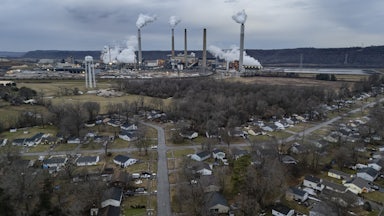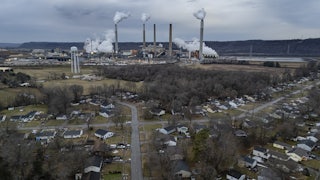As destructive as the next Trump administration will be, it’ll be productive in one critical sense: creating lots of things to get mad about. For some of us, that means having a lot to write about too. By “us” I mean journalists tasked with reporting and/or responding to the news of the day. Plenty of advocacy groups also work this way, as evidenced by the dozens of press statements that flood into my inbox every time Trump and his transition team make an announcement: that Elon Musk and Vivek Ramaswamy will lead a Department of Government Efficiency; that Trump has tapped fossil fuel booster and North Dakota Governor Doug Burgum to head the Department of Interior; that anti-vaxxer Robert F. Kennedy Jr. could take the top job at the Department of Health and Human Services.
It’s awful and overwhelming. The push notifications announcing every new ghoul Trump plans to install quickly pushed the roughly 48 hours spent analyzing why Trump won and why Harris lost down the memory hole. Now there are new questions: Who are these people again? What will they do in office? What does that office even do? Much of this is necessary, of course: Journalists have a duty to inform the public about the news of the day, and we need stuff to write about. Nongovernmental organizations working on any number of the causes in Trump’s crosshairs are obliged to respond. Those dismayed to be facing four more years of Trumpian chaos will find an endless list of things to make them (rightfully) angry.
Yet this is also eerily familiar. The sheer onslaught of news during the last Trump administration seemed to make every week feel like a month; the 2024 election itself feels almost like a distant memory now. Amid broader uncertainties there’s a comfort in the problems of the day—like a grotesque personnel announcement—being so comparatively discrete. I sympathize. The climate crisis is an overwhelmingly depressing subject. Choosing topics within that crisis to try to understand, write, and publish about a few times a week (i.e., doing my job) feels better than trying to reckon with it as a Cronenberg-esque mass of looming destruction. I enjoy this work and like to think that it can be helpful insofar as it informs or motivates.
Responding to the news about climate change is not a strategy for reducing emissions, though. And responding to every new and terrible thing Trump says isn’t the way to defeat him, particularly given how little leverage Democrats will actually have over the next four years now that Republicans hold both houses of Congress. Reacting to announcements and actions designed to anger Trump’s political opponents shouldn’t distract from longer-term strategizing around how to build a political force that’s capable of beating the right-wing movement that brought him to power. There’s a particular risk that establishment Democrats who just lost the election may treat the frenzy over everything Trump does and says as an excuse to double down on their losing strategy: “Look how terrible he is! Vote for us next time or it’ll get worse.”
Those eager for a more durable defeat of the GOP—the kind that Democrats have been unable to deliver—should resist getting sucked into this. While Democratic leaders probably won’t engage in productive reflection, the climate movement needs to: Why did so many green groups demand so little after the Inflation Reduction Act passed in the summer of 2022? Was it a mistake to endorse Joe Biden in June 2023? How can climate policy offer real relief to cost-of-living concerns, not just construction and manufacturing jobs building low-carbon technologies?
In 2018, after charging into Nancy Pelosi’s office with a sit-in, the upstart movement for a Green New Deal put climate change on the national agenda in a way that it hadn’t been for at least a decade. It also fundamentally changed the way Democrats talk about climate politics: First, it made them do it; and second, it shifted the climate politics conversation from talk of narrow technocratic tweaks to a vision involving jobs and investment. Obviously, the Green New Deal did not become the law of the land; there’s plenty to unpack about why that’s the case. But it did clearly affect the way the next Democratic administration thought about climate policy, from the Bipartisan Infrastructure Act to the Inflation Reduction Act to the Civilian Climate Corps. These striking successes occurred partly because the Sunrise Movement spent much of the early Trump administration quietly figuring out how to galvanize thousands of people to demand transformative climate policy and why previous attempts to do this had failed.
It didn’t work perfectly. But it remains a compelling example of the merits in sidestepping legacy institutions and taking a step back from a relentless Trump-era news cycle—particularly when faced with massive defeat.








